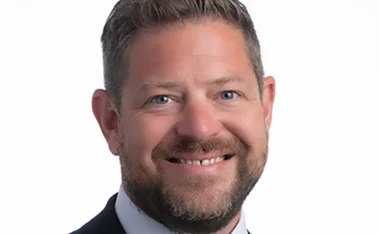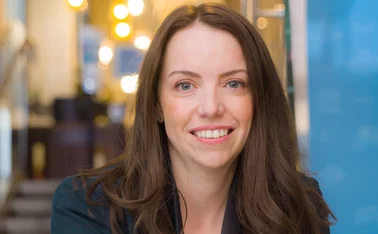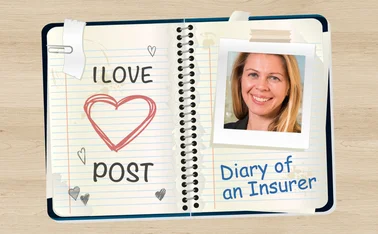
Analysis: Has the industry learned its lesson after the collapse of a third unrated insurer in two years?

After three months of solvent run-off, Danish insurer Alpha finally fell over last month. Its collapse sent shockwaves through the market and prompted black cab drivers to besiege the offices of their London broker.
It is the third unrated insurer to collapse in three years, following Gable and Enterprise. However, brokers have sought out unrated markets to replace the Alpha capacity.
Gefion, another Danish unrated insurer, has emerged as the majority alternative capacity for brokers that insure black cab drivers.
That has prompted many to ask whether brokers have learned their lesson at all.
“It is just absolutely staggering that brokers are replacing the capacity with unrated markets,” said Ashwin Mistry, chairman of Brokerbility.
“If brokers have gone from the frying pan into the fire, are we learning nothing?”
It is not known how many policies Alpha had in force at the time of its collapse. It is understood the business wrote professional indemnity, motor and gap insurance, and home insurance in the UK.
CBL collapse
There were rumblings that all was not well at Alpha as early as December 2016.
The Danish Financial Services Authority ordered the company to increase its claims provision for Norwegian workers compensation and French ‘dommages ouvrage’ (householder defects) policies, by DKr277m (£32.6m) and DKr62m respectively.
It was around the same time that PIB moved capacity for its newly-acquired managing general agent, Thistle Underwriting, from Alpha to an A-rated carrier.
However PIB chief financial officer Ryan Brown said there was little inkling of the coming collapse even then.
“It wasn’t that we smelt a rat with Alpha,” he said. “We simply have very little appetite, as a rule, for unrated capacity.
“As a group we have taken the strategic decision, that in terms of capacity providers, we will have as much of our business as we feasibly can with A-rated capacity.”
However, the biggest blow came when one of Alpha’s A-rated reinsurance providers, CBL Insurance, went into liquidation in February. Less than a month later, Alpha also slipped into what was, at the time, a solvent liquidation. The Danish FSA ordered the company to cease writing new business.
An Alpha group statement said: “This decision is a direct consequence of CBL Insurance, one of Alpha Insurance’s largest reinsurers, having had its AM Best ‘A-‘ rating suspended and has been placed into interim liquidation.
“As such, the board of directors of Alpha Insurance decided on Saturday 3 March to cease all underwriting of new business as well as renewals with immediate effect.
“On Sunday 4 March, the general assembly of Alpha Insurance decided to place the company into solvent liquidation. This means that Alpha Insurance as from this date will be in run-off.”
However, on 8 May, the liquidator of the company filed for bankruptcy. The Danish FSA urged policyholders to seek alternative cover urgently.
“The bankruptcy means that policyholders no longer can report their claims to Alpha Insurance,” said the FSA.
“Policyholders must report their claims to the Danish Guarantee Fund for non-life insurance undertakings, provided that the claims are covered by the Guarantee Fund. Otherwise, policyholders must report their claims to the bankruptcy estate of Alpha Insurance.”
However, there was initially confusion on what that meant for UK policyholders. Three days after the FSA announcement, the Financial Services Compensation Scheme said it was trying to understand who would be responsible for refunding premium and paying claims.
In a later update, it said: “We expect most UK customers who held policies with Alpha Insurance would be covered under the FSCS if they had an insurance claim or if they are entitled to a return of part of the premium that they paid for their policy.
“FSCS is working closely with the Danish Insurance Guarantee Fund to agree how claims can be processed quickly. Our priority is to get UK customers with claims that are protected by FSCS back on track as quickly as possible.”
The FSCS also urged policyholders to contact the broker that sold them the original policy to arrange alternative cover. Brokers were told to contact the FSCS.
Black cab drivers
In the three-day period between the collapse and the FSCS guidelines, there was chaos. Post visited the offices of black cab broker Protector Policies, which had used Alpha as its majority capacity provider.
There were hundreds of cabbies queuing to arrange alternative cover, many of whom had gotten a text on 8 May at 10.30pm mid-way through a ride to tell them they were no longer insured.
Up to 700 taxi drivers and 10,000 minicab drivers were affected, the Licensed Taxi Drivers Association said.
One cabbie, who declined to be named, said: “We’re losing hundreds of pounds a day. Some of the lads have got kids, they’ve got mortgages. We’ve all got bills. We rely on work to pay those bills. A day off the road might not have too big of an impact but this looks set to go on several days.”
Protector Policies is owned by J&M, which also owns Cover my Cab. The company declined to comment when contacted by Post.
However, on a blurb on its website, it confirms Gefion is picking up the business from Alpha.
“Your broker can arrange like-for-like policies under an alternative insurance company, Gefion Insurance,” it said.
In numbers
700 taxi drivers and 10,000 minicab drivers were left uninsured following the Alpha collapse
9000 The number of policies previously written by Alpha that Aviva has taken on
DKr1.8bn (£210m) Alpha’s claims provisions at the time of its liquidation
Gefion
Gefion is a Danish unrated insurer, operating in a very similar model to Alpha. It has no direct relationship with Alpha, but its CEO – Tonny Anker-Svendsen – is listed on his Linked In profile as owner and co-founder of both companies.
According to its annual report, the company cedes 70% to 90% of its risk to A- rated reinsurance capacity. As a result, Gefion’s maximum single claim loss is limited to €500,000 (£438,000). It employs 15 people.
The company has written DKr1.78bn, primarily in the UK, of which 98% is motor. Gefion announced earlier this month it had improved its solvency capital position by DKr15.1m, bringing its SCR to 135%.
One market source said the numbers were troublingly low. “Gefion has made a song and dance about raising an extra £1.7m for its solvency margin. £1.7m in the context of an insurance company should be an absolute drop in the ocean. How small are these guys?
“And we’re placing a whole load of business with it?. You can bet your bottom dollar than there will be a problem with Gefion in the next couple of years. It’s completely obvious.”
Anker-Svendsen declined to comment when contacted by Post, over matters related to the Alpha collapse.
He said: “As a third-party to the Alpha-proceedings, Gefion is generally not able to comment on the specific situation that Alpha Insurance is facing.
“Gefion was formed in 2015 and is rooted in a strong cultural foundation of transparency and suitable behaviour. Gefion has managed to build a profitable book of business, based on organic growth.
“It is our strategy to target primarily shorter tail business, all-over Europe, sourced through a selected network of trusted insurance agents. We focus on developing long-term relationship with our coverholders and reinsurers. Our reinsurance panel is highly diversified and includes only reputed reinsurance companies with a minimum credit rating of S&P ‘A-‘ (or equivalent).”
That was a sentiment echoed by Pukka Insure, a managing general agent which uses Gefion as a capacity provider.
Sam White, CEO and founder, said: “The news of Gefion’s cash injection is very encouraging and positive news for those involved in the business.
“We continue to be very proud to partner with Gefion and share in its journey, the long standing qualified team and A-rated reinsurers that back it leave us with no concerns regarding our position with it.”
Bollington’s MGA also uses Gefion capacity, but was not immediately available for comment.
Rated paper
As well as being offered Gefion paper, black cab drivers at the Protector offices said they were also offered Aviva policies but prices were significantly higher.
Aviva’s managing director for UK intermediaries, Phil Bayles, said the wide use of unrated paper was making margins too slim for rated insurers to enter difficult markets.
“You often hear brokers say we only use them because your price is too high,” he said. “That’s because the price is kept artificially low.
“Because you keep having this unrated paper that doesn’t have to put much capital aside, coming in and writing the business too cheaply. There’s a proliferation of cheap unrated paper flooding the market and it is stopping quality insurers entering what is a difficult market.”
Aviva said it had taken on another 9000 clients from telematics firm Carrot following the Alpha collapse. Bayles said that was an exception.
“As a general rule, we haven’t stepped in to pick up cases,” he said. “With Carrot it was an exception, because that was effectively business that we were writing anyway.
“We are very happy to write that business. It fell well within our appetite and pricing window. But it was a one-off. We haven’t generally taken on Alpha business.”
However, he said some cabbies were willing to pay additional premium to go with a rated carrier. He said: “There have been policies that have come on to the market. We have seen an increase in sales of our taxi product. That’s just stuff washing back into the market. We haven’t picked up anyone else’s policies as such.”
FSCS levy
Following the collapse of Enterprise and Gable, the Financial Conduct Authority consulted on whether to charge brokers that use unrated markets an additional risk-based FSCS levy.
That consultation was eventually abandoned on the basis that it would have a “negative effect on small and mutual businesses that do not, or are not required to purchase a rating”.
However, Mistry said it was time for the FCA to revisit the idea. “If a broker uses an unrated market they should pay a proportionate extra contribution,” he said.
“I do not think brokers like ourselves should be asked to contribute to failed insurers. Those brokers that used them should carry the can, they should absolutely pay. They’ve had the income from that period. They should be asked to fork out, not brokers like ourselves.”
However others said the idea was practically unworkable. “I’ve always thought that was almost impossible to see how that would work,” said Peter Blanc, CEO of Aston Lark.
“If a broker places 1% of his business in unrated capacity does he pay 1% more levy? I personally could never get my head around that, I’ve always thought it was a bit of a dumb idea.
“A more appropriate thing is that a broker that uses unrated insurance should pay a lot more for the PI insurance than a broker that doesn’t use unrated insurance.
“That would help the market. If brokers knew they would have to pay twice as much for their PI using unrated markets it would make them think twice about using them in the first place.”
Post contacted Howden and Lockton, two large PI brokers used by intermediaries on whether that was an option, but both declined to comment.
Only users who have a paid subscription or are part of a corporate subscription are able to print or copy content.
To access these options, along with all other subscription benefits, please contact info@postonline.co.uk or view our subscription options here: https://subscriptions.postonline.co.uk/subscribe
You are currently unable to print this content. Please contact info@postonline.co.uk to find out more.
You are currently unable to copy this content. Please contact info@postonline.co.uk to find out more.
Copyright Infopro Digital Limited. All rights reserved.
As outlined in our terms and conditions, https://www.infopro-digital.com/terms-and-conditions/subscriptions/ (point 2.4), printing is limited to a single copy.
If you would like to purchase additional rights please email info@postonline.co.uk
Copyright Infopro Digital Limited. All rights reserved.
You may share this content using our article tools. As outlined in our terms and conditions, https://www.infopro-digital.com/terms-and-conditions/subscriptions/ (clause 2.4), an Authorised User may only make one copy of the materials for their own personal use. You must also comply with the restrictions in clause 2.5.
If you would like to purchase additional rights please email info@postonline.co.uk








